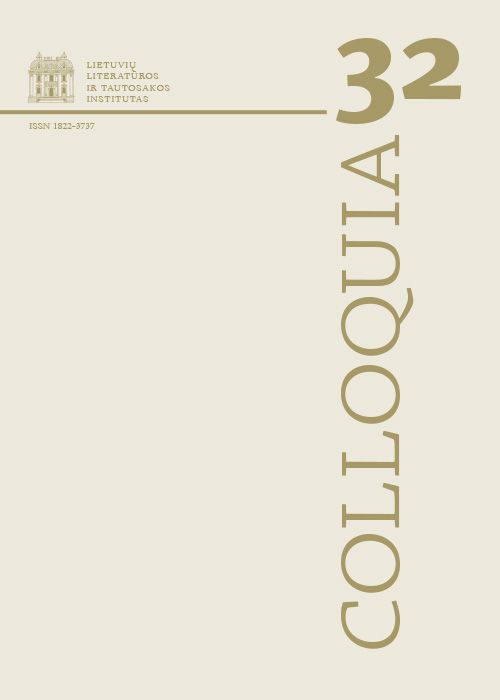Imagology as an Instrument for Studying (E)migrant Identity
Abstract
The author of this article seeks to contemporize the question of national identity and to test the relavance of comparative imagology for the study of texts generated by the latest wave of Lithuanian and Latvian (e)migration in the twenty-first century. In the first part of the article she presents the main principles of literary imagology (the French and Aachen schools) and explains its connections with other literary analytical disciplines. In her textual explorations, Laurušaitė draws on the methodological possibilities offered by the Aachen school. The nature of comparative imagology dictates that images are not studied in terms of an isolated national culture, as products of national essentialism, but as resulting from the interweaving of transnational contexts.
In this article, the author scans contemporary Lithuanian and Latvian (e)migration literature, looking for recurring images that capture Baltic (e)migrant identity. She groups these in concentric layers of imagery (geographic, topographical, social, culinary, and so on) that bear witness to Baltic self-image and the national characteristics that other peoples attribute to the Balts (hetero image). She concludes that Lithuanians and Latvians identify themselves, and are identified by others, in negative terms. The literary hetero images discussed here indicate that people of other nationalities do not have an appropriate understanding of Baltic national character and often succumb to negative stereotypical images circulating in popular culture.
Downloads
Most read articles by the same author(s)
- Laura Laurušaitė, Food as a Tool of Grotesque in Contemporary Lithuanian and Latvian Fiction , Colloquia: Vol. 54 (2024): Colloquia
- Laura Laurušaitė, A Compendium of Literary Baltistics , Colloquia: Vol. 42 (2019)
- Laura Laurušaitė, Value Сhanges in Contemporary Emigrant Literature: To Have or to Be? , Colloquia: Vol. 41 (2018)
- Laura Laurušaitė, Benedicts Kalnacs, On Regional and International Recognition , Colloquia: Vol. 36 (2016)
- Laura Laurušaitė, The Landscape of Lithuanian E(Migration) Axiology , Colloquia: Vol. 35 (2015)
- Laura Laurušaitė, Soviet Ideology on a Platter: Food in Lithuanian and Latvian Literature , Colloquia: Vol. 56 (2025): Colloquia
